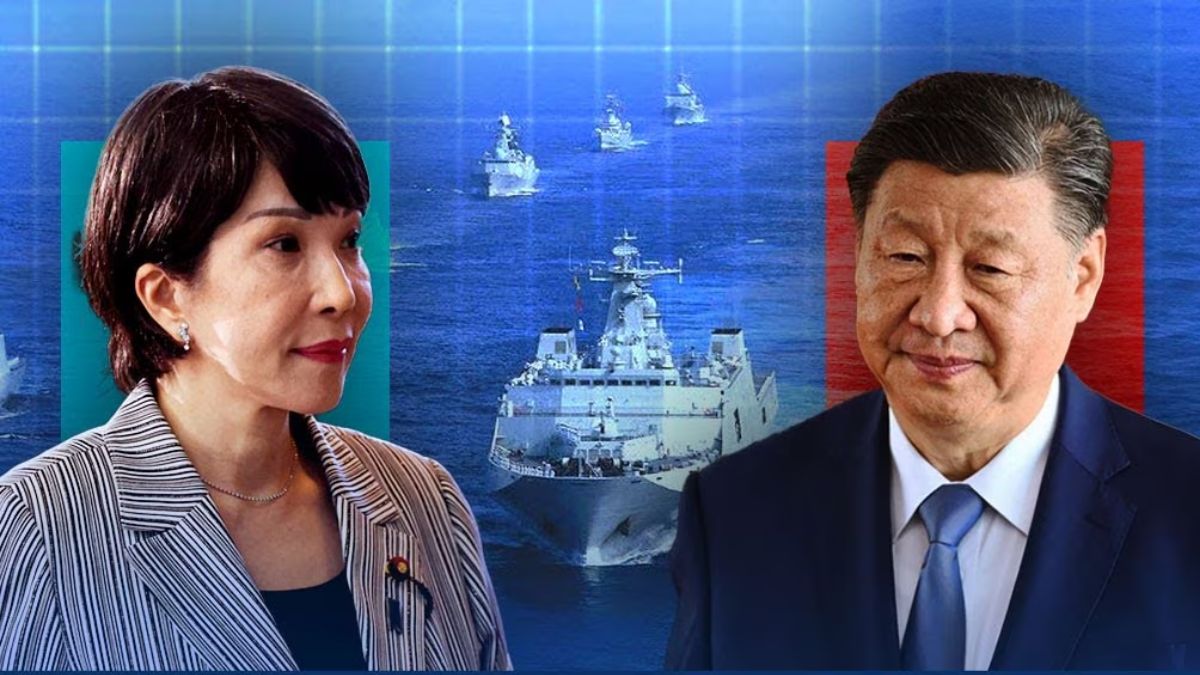Japan’s relations with China have plunged to their lowest point in years, as Beijing rolls out a sweeping economic, cultural and travel freeze in response to Prime Minister Sanae Takaichi’s recent comments on Taiwan.
What began on November 7, when Takaichi told parliament that a Chinese attack on democratically governed Taiwan could constitute “a situation threatening Japan’s survival” has triggered a rapid escalation with China signalling that it will impose broad and prolonged costs unless she retracts the remarks.
China has rejected Tokyo’s insistence that the comments reflected longstanding Japanese policy, saying that the prime minister’s statement has “fundamentally undermined the political foundation” of relations. Over the past two weeks, Beijing has moved across multiple fronts, intensifying economic pressure at a time when Japan’s domestic outlook is already fragile.
Seafood bans, suspended film releases, travel warnings
One of the first sectors to feel the strain is food exports. Chinese officials have warned that Japan’s seafood inspection processes are “insufficient,” signalling a possible return to a blanket ban — only months after partially lifting it following the Fukushima wastewater dispute. Talks on resuming Japanese beef imports have been halted as well, according to Kyodo News.
The cultural fallout has been equally sharp. Chinese distributors have suspended the release of at least two Japanese films, while Beijing has indefinitely postponed a trilateral culture ministers’ meeting with Japan and South Korea. Meanwhile, state advisories have urged citizens to avoid non-essential travel to Japan, prompting Chinese airlines to offer refunds or free changes on Japan-bound flights.
Chinese coast guard vessels have also increased activity around the disputed Senkaku/Diaoyu Islands, underscoring that Beijing intends to apply pressure across diplomatic, economic and maritime domains simultaneously.
Quick Reads
View AllA worsening economic backdrop for Tokyo
The timing of Beijing’s actions could not be more challenging for Japan. The country has just reported its first quarterly GDP contraction in more than a year, highlighting weakening consumption and exports. China is Japan’s second-largest trading partner, purchasing roughly $125 billion worth of goods in 2024, including industrial machinery, automobiles and semiconductor-related equipment. In contrast, South Korea, Japan’s third-largest destination — absorbs far less, making near-term market diversification extremely difficult.
Japan has faced similar coercive behaviour from China in the past. In 2023, Beijing imposed a blanket ban on Japanese seafood after the Fukushima discharge, despite the International Atomic Energy Agency deeming it safe. And in 2010, rare earth exports were halted for seven weeks after a maritime collision. As US Ambassador George Glass noted this week, “Coercion is a hard habit to break for Beijing”, adding that Washington would stand by Tokyo just as it did in previous episodes.
For Japanese exporters, especially seafood producers in Hokkaido and northern prefectures, the sudden reversal is another blow. Nearly 700 companies had applied for new export permits after China signalled a reopening. “Things that were moving forward suddenly went backwards,” said Kazuya Yamazaki, president of Sanwa Fisheries. Analysts say there is “no immediate off-ramp” unless Takaichi retracts her comments which would be politically untenable.
China’s strategy risks strengthening Takaichi at home
Paradoxically, Beijing’s escalation may help consolidate support for Takaichi’s political agenda. Her remarks on Taiwan, while sharply criticised by China, resonate strongly with conservative and centrist voters who are increasingly alarmed by regional instability, including Chinese military drills and assertiveness in the East China Sea.
Economic retaliation from China may reinforce Takaichi’s longstanding arguments: that Japan must diversify supply chains, strengthen defence readiness and reduce overdependence on Beijing. As one Tokyo-based analyst noted, China has elevated the confrontation to a level “where they cannot easily back down,” while Takaichi would face “political suicide” if she retracted her stance. The result is a standoff in which Chinese pressure could inadvertently enhance her political authority rather than weaken it.
Taiwan rallies behind Japan as the dispute widens
The crisis has also drawn attention in Taiwan, where leaders have been quick to signal solidarity with Japan. President Lai Ching-te posted photographs of himself eating sushi made with yellowtail from Kagoshima and scallops from Hokkaido, a symbolic show of support as China signals a fresh seafood ban. Foreign Minister Lin Chia-lung urged Taiwanese citizens to travel to Japan and purchase Japanese goods, calling China’s economic coercion part of a long-standing pattern of “bullying behaviour.”
Taiwan’s government, which rejects Beijing’s claims of sovereignty, has faced similar agricultural and seafood bans in recent years. Its alignment with Japan adds another layer to an already complex regional picture.
Little prospect of de-escalation
As Takaichi prepares to attend the G20 summit in South Africa, Beijing has said Premier Li Qiang has no plans to meet her. Chinese officials continue to insist that Taiwan is an internal matter on which “no compromise is possible.” Tokyo, meanwhile, has summoned the Chinese ambassador to protest increasingly aggressive rhetoric, including statements from China’s consul in Osaka referring to Takaichi’s “dirty head”, a remark later deleted.
For now, China and Japan appear locked into a confrontation driven by political signalling as much as geopolitical interests. The economic consequences for Japan may deepen in the coming months. But politically, the pressure campaign may be strengthening, rather than weakening.
With inputs from agencies
)